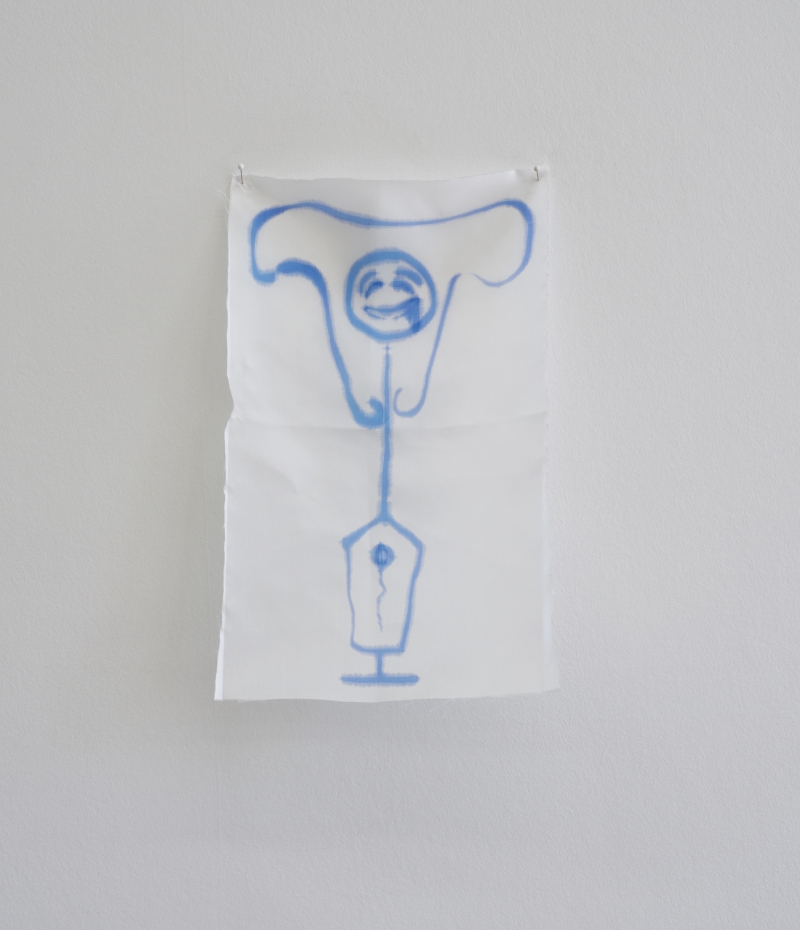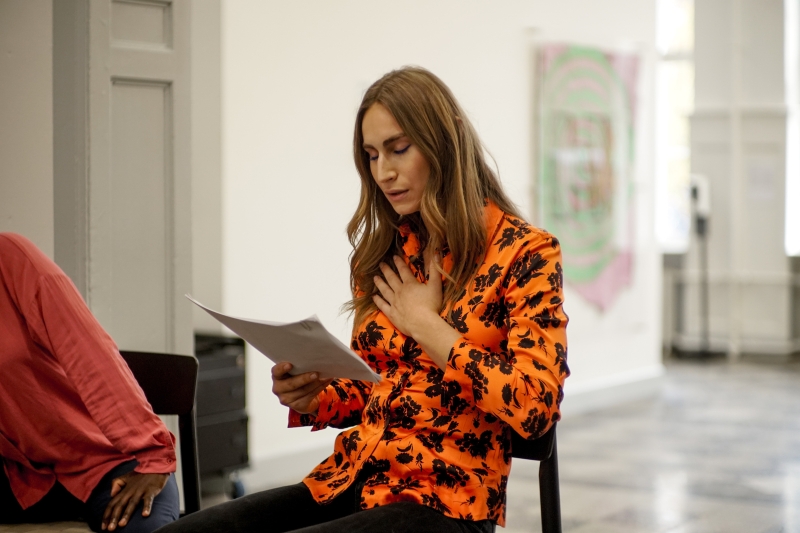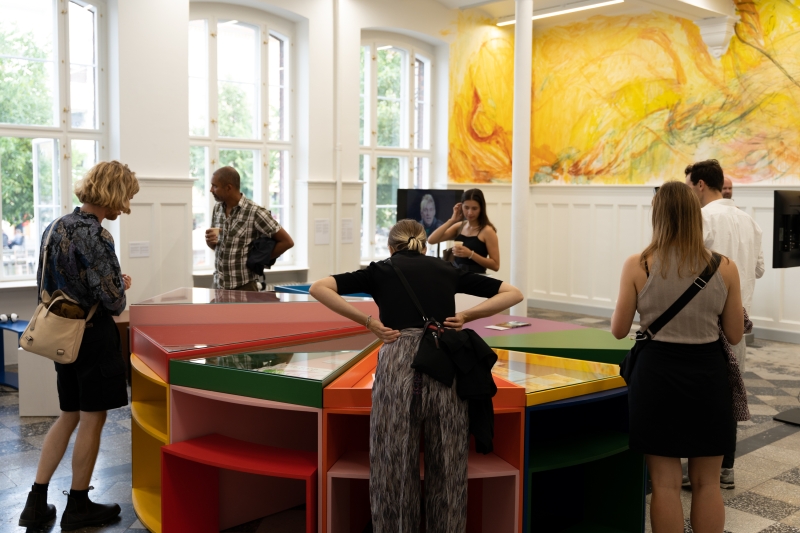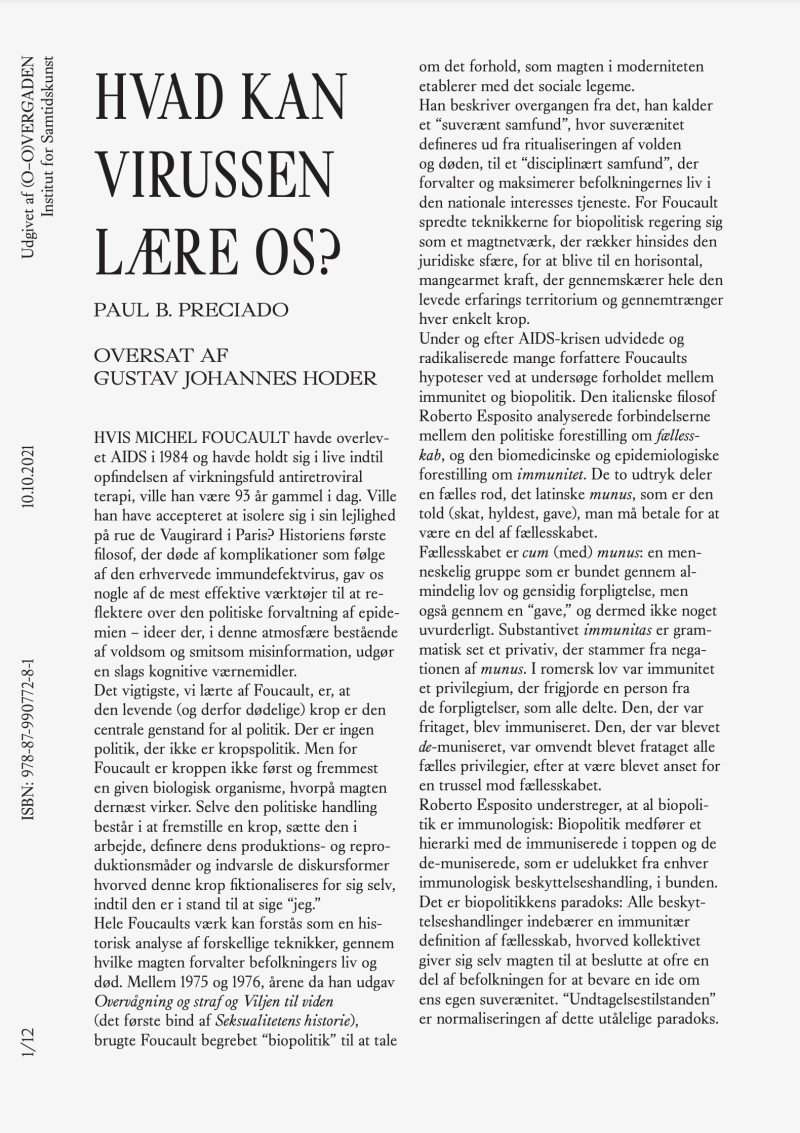With the exhibition Psychopathia Sexualis, Overgaden brings the important political work on diversity, respect, and recognition into focus. The project’s podcast collaboration, statement T-shirts, and exhibition of art, campaigns, activism, and cabaret from 1981 until today thematize the pathologization of sexualities, and initiate a new Danish LGBTQIA+ art history.
Psychopathia Sexualis is a prismatic exhibition project exploring the question of (psycho)pathologized sexualities with particular attention to the HIV/AIDS pandemic and its muted histories from the media to fine arts, from cabaret to activism, in Denmark and beyond.
The exhibition—which also includes a podcast produced in collaboration with The Lake Radio and HEN, a t-shirt line co-created with Filip Berg and Han Kjøbenhavn—hijacks its title from the 1886 medical forensic study Psychopathia Sexualis, one of the first books on psychopathology and sexuality by Austrian psychiatrist Richard von Krafft-Ebing.
Background of the exhibition, and a central question
The year 1981 plays a central part in the exhibition. In 2021 it is 40 years since homosexuality was removed from the list of psychiatric disorders in Denmark.* It has also been 40 years since the US Center for Disease Control (CDC) published an article in its weekly journal Morbidity and Mortality Weekly about a rare lung disease detected in five otherwise well, homosexual men in Los Angeles—what was later known as AIDS (Acquired Immunodeficiency Syndrome).
The exhibition project Psychopathia Sexualis takes these two historical events from 1981 as its starting points and examines the psychopathologization of gender, sex, and sexualities by asking the fundamental question: where is the Danish art history that deals with HIV and AIDS?
Artists: Zoltan Ará, Filip Berg, Karim Boumjimar, Elmgreen & Dragset, Nicolas Maxim Endlicher, Brendan Fernandes, Sidsel Meineche Hansen, Katrine Dirckinck-Holmfeld, Cassie Augusta Jørgensen, Carlos Motta, Niels Nedergaard, Maria Thastum, Maria Wæhrens, and more.
The exhibition is curated by Mathias Kryger in collaboration with O—Overgaden and is a part of Copenhagen21—EuroGames & WorldPride.
Exhibition text
The exhibition is supported by Knud Højgaard’s Foundation and the Danish Arts Foundation.
- Events
![overgaden_cassie_foto_christian_brems_0004.jpg]() PerformanceCassie Augusta Jørgensen performance: Afternoon of a Faun
PerformanceCassie Augusta Jørgensen performance: Afternoon of a Faun ![10.okt_finissage_psychopathia-sexualis-overgaden_photo_christian-karsgaard-gregersen-6-of-33.jpg]() FinissageFinissage: Psychopathia Sexualis Text Galore
FinissageFinissage: Psychopathia Sexualis Text Galore![20210813_overgaden_ferniseringer_foto_christianbrems_0025.jpg]() OpeningOpening: Ida Sønder Thorhauge + Carl Emil Jacobsen + Psychopathia Sexualis
OpeningOpening: Ida Sønder Thorhauge + Carl Emil Jacobsen + Psychopathia Sexualis- PodcastsPsychopathia Sexualis S1E1: Will the AIDS crisis in Denmark finally get its own cultural history?
What actually happened back when HIV and AIDS became the new reality? What happened on the Danish art scene during the years of the AIDS crisis’ tight grip around the world? And why, when you ask about the relationship between …
- Psychopathia Sexualis S1E2 – Who was Niels Nedergaard?
In this episode of Psychopathia Sexualis we have moved from the radio studio into a large, beautiful art studio in an old soft drink factory at the outer part of Nørrebro in Copenhagen. Artist Viera Collaro took over this space …
- Psychopathia Sexualis S1E3: The History of Sexuality
In this episode we dig deeper into the history of sexuality together with professor and sexologist Christian Graugaard. And we ask about how German-Austrian psychiatrist Richard von Krafft-Ebing’s clinical forensic study Psychopathia Sexualis from 1886 has influenced the way we …
- Psychopathia Sexualis S1E4: When “The Gay Plague” hit Denmark
In this fourth and final episode we’re discussing how HIV and AIDS were tackled politically and what possible treatments the health system managed to establish. What is a condom really and how was the so-called “condom message” made sexy? Our …
- PublicationsHvad kan virussen lære os?
![hvadkanvirussenlareos.png]()











